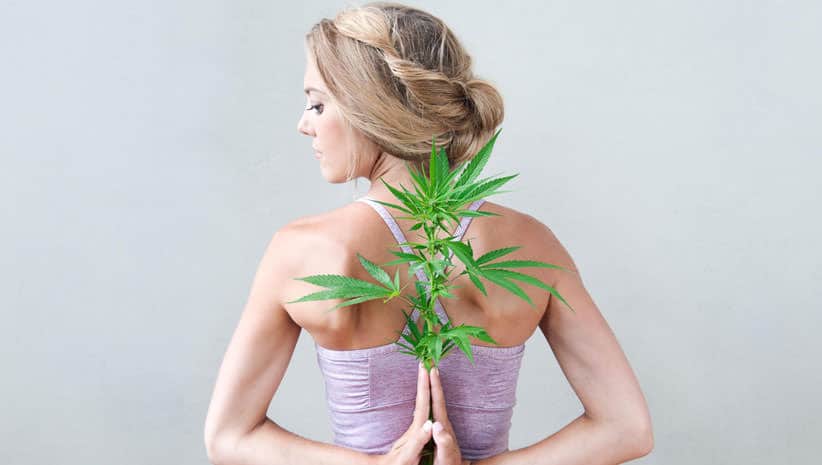
Plant and practice share a rich history as spiritual and healing modalities, but does yogic philosophy truly support cannabis for long term wellness? Let’s explore further.
————-
Ground up cannabis leaves soaked into a psychoactive paste, served straight-up or steeped in hot flavored milk. You’ve got options on Holi Day, India’s largest spiritual festival of the year dedicated to Lord Shiva. Perhaps you want to celebrate Shiva, known as Lord of Ganja and the founder of Yoga by getting stoned, escaping stress, and laughing with friends. Or maybe you consume the sacred plant to achieve yogic union with the divine the way Shiva followers have done for thousands of years.
Starting nearly 3,500 hundred years ago, Indians transcribed spiritual revelations from gods like Lord Shiva in the first books of Hinduism and Yoga. In these books, known as the Vedas, you’ll find Lord Shiva linked with a miraculous substance called soma, which many believe to mean cannabis. As one myth goes, Shiva consumed cannabis to recover from a deadly poison that he drank to save the universe. Shiva’s also known as the first deity to define yoga as the divine union between mind, body, and spirit.
Lord Shiva is one example of the undeniable link between yoga and cannabis, yet a debate exists that dates back to the laws of ancient Hinduism. Is cannabis a tool for yogic enlightenment or is it a means for recreational escape? While India is tolerant and even promotes marijuana for spiritual use, you won’t find one official branch of yoga that endorses it.
But maybe the question of yogic union with the divine does not resonate with you. Maybe you’re stressed out, chronically tired, sometimes in pain and in need of alternatives to prescription drugs. What does yogic tradition say about cannabis as a tool for medicine?
Thousands of years ago, healthcare theories were transcribed in to the Vedas which formed yoga’s original medical system—Ayurveda. If you subscribe to Ayurvedic theory, you believe that cannabis can treat a variety of conditions, from pain to epilepsy, depression, appetite issues, and difficulty focusing. But Ayurveda stops short of labeling cannabis as a miracle drug. Instead, yoga’s ancient healthcare system warns that marijuana use must have an end date because habitual consumption will numb the mind and body. Ultimately, Ayurveda’s support for cannabis is as undeniable as it is conditional.
Ayurvedic theory on cannabis is a perfect metaphor for the yoga-canna debate because like most theories, Ayurveda was created with shades of gray. Similarly, yogic perspective is not black and white either. The 90-minute sweat fest you know as yoga today has evolved alongside humans for centuries.
While the practice began as a set of moral disciplines and prayers to achieve divine union, hundreds of years later yoga changed when its leaders invented seated postures. You may know them as hip openers. A few centuries after that, modern day yogis developed down dogs, chaturangas, vinyasas, and yes, your favorite—hot yoga.
Today yoga is a hybrid of all of the above iterations and the practice intersects with cannabis use throughout the world. Depending where you live, you can easily find marijuana-fueled spiritual retreats and chakra workshops, along with CBD-infused skin salves on every studio shelf. Real people are using yoga and cannabis to heal, have fun, and look within for higher purpose.
So maybe the answer to the question, “how does yoga feel about cannabis?” doesn’t really matter. Yoga is not a person. It’s a philosophy and set of practices based on textual revisions written by imperfect humans. Yoga is the quest for peace and transcendence that can be effectively or mindlessly paired with cannabis use: The X factor may just be your intention.